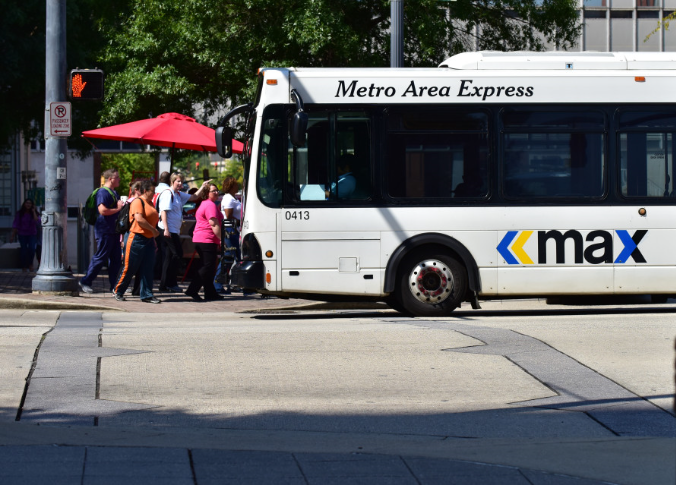
City Council Public Information Office

Birmingham’s public transportation system is about to get a major overhaul; featuring a modern Bus Rapid Transit (BRT) system that will stretch from Five Points West to Woodlawn with 17 stops in between.
At last week’s Five Points West Community Framework meeting, elected officials and representatives with Strada Professional Services, the firm overseeing the project, laid out some of the preliminary designs for the routes and the buses that will soon be serving 25 neighborhoods throughout the city.
Two years ago, city planners targeted the Five Points West community as an area ripe for a renaissance. “We wanted to use the full force of the city and our planning initiatives to bring about change,” said Birmingham city planner Donald Wilborn. “We identified this area, specifically, as a transit ready community. That was carried forth into our framework plan two years ago.”
Wilborn said that plan included efforts to revitalize the Five Points West business district that is now anchored by the state-of-the-art Crossplex Facility. In 2015, Birmingham was awarded a $20 million TIGER grant to support the development of the city’s first 15-mile BRT route.
Birmingham City Council Pro Tem Steven Hoyt told the few dozen constituents gathered at the Birmingham Police Department West Precinct, this bus route is just the beginning of the transportation and economic overhaul coming to Birmingham.
“When you have transportation options for people, the things that come next are job opportunities. It’s going to be a great thing when Smart Growth America, the BJCTA (Birmingham Jefferson County Transit Authority) and the BRT are all combined,” Hoyt said. Along with the federal TIGER grant funding, Birmingham was selected as one of five cities to receive assistance from Smart Growth America, a national think-tank aimed at improving neighborhoods through policy and planning initiatives.
According to a press release issued by the organization, Birmingham can expect to see workshops focused toward, “Helping communities plan for and manage economic development near transit through effective zoning and land use, as well as provide expert advice on preserving affordable housing and securing advantageous commercial development, among other opportunities.”
Hoyt also touched on a concept of building a daycare center into the Crossplex, which would allow residents to ostensibly “drop their children off before they get on the bus to go to work,” and pick them up on time later that day.
GPS Tracking
The buses will be outfitted with Wifi and “Traffic Signal Priority” sensors that will communicate with traffic lights, switching them from red to green, or prolonging the light, to allow the buses to remain running on time. Each bus will feature GPS tracking that will allow riders to monitor their progress from the waypoint stations at each stop. The buses will also have a dedicated lane, free of traffic.
“Strada is doing a great job of planning and working with Smart Growth America,” Hoyt said. “This is just a glimpse of what this city will be.”
Howard Richards, project manager for Strada, laid out some of the economic impact that he expects to see once the BRT is fully operational by the fall of 2020. Richards cited Cleveland’s Healthline, often touted as the best public bus system in the country, as an example of the kind of community impact a BRT system can have; Healthline has led to nearly a 100 percent increase in job growth and billions of dollars invested along the route.
“For every dollar put into the BRT system, the public will get two times as much back. It’s a huge benefit. That’s why cities all over the country are installing these systems,” Richards said.
The buses will be branded differently than the current MAX system that operates in Birmingham, though no details were offered beyond Richards saying, “We might call it the Magic Line or something like that.” Each of the 17 stops will feature an elevated platform that will allow the buses to use precision docking system making for seamless wheelchair access as well as “all door boarding.”
Richards said tickets will be purchased at the kiosks at each stop and they are currently working on a mobile phone purchasing option. Construction is slated to begin in the first quarter of 2018.




